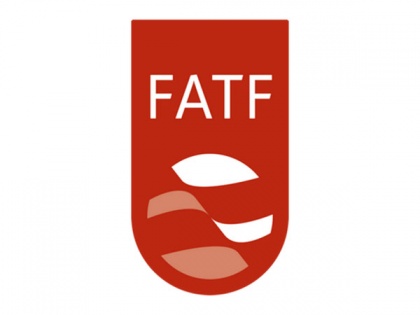Six months after removal from FTAF 'grey list' on terror funding, Pakistan paints facade of compliance
By ANI | Published: May 3, 2023 11:42 AM2023-05-03T11:42:17+5:302023-05-03T11:45:03+5:30
Islamabad [Pakistan], May 3 : Over six months since Pakistan was removed by the Financial Action Task Force (FATF) ...

Six months after removal from FTAF 'grey list' on terror funding, Pakistan paints facade of compliance
Islamabad [Pakistan], May 3 : Over six months since Pakistan was removed by the Financial Action Task Force (FATF) from its grey list, a close look at the efforts made by Islamabad in implementing the FATF's Action Plan has revealed a vast difference between its claims and the reality, reports InsideOver.
Pakistan would still be monitored for effective implementation of its Anti-Money Laundering (AML)/Countering Terror Financing (CFT) policies, the FATF made it clear at the time of removing Pakistan from the list.
Despite this, the country seems to remain in a state of policy reluctance when it comes to catering to the problematic domains, according to the report by InsideOver.
At the February 2023 plenary held in Paris, the FATF president urged Pakistan to complete the committed Action Plan items related to AML/CFT systems. Pakistan, however, keeps on citing various problems faced by its implementation agencies to avoid making any real efforts to tackle the problem, according to InsideOver.
Pakistan claims to have identified 12 United Nations Designated Persons (UNDP) of which nine are said to be in Pakistan while three are located outside Pakistan. Projecting similar progress in Targeted Financial Sanctions (TFS) regime, Pakistan claims to have frozen 17 assets of six UNDPs and 189 assets of 118 associates of UNDP.
However, various state entities in the country acknowledge that the understanding of TFS regimes at the grass root level i.e., at the district level is inadequate with the officials being poorly trained and ill-equipped to implement the obligations effectively. Pak observers also point out that hardly any punitive measure has been taken against negligent employees found not complying with TFS requirements, InsideOver reported.
The international community was shocked recently when a video went viral in which Hizbul Mujahideen chief and US-designated global terrorist Syed Salahuddin were seen leading the funeral prayers of one of India's most-wanted terrorists, Bashir Ahmad Peer who was killed in Pakistan.
Those who have closely watched Pakistan's fixation with terrorism explain its inalienability from domestic politics. Action on domestically proscribed persons or entities is influenced by political and military considerations.
Moreover, listing and delisting under the Anti-Terrorism Act, (ATA) 1997 does not lead to subsequent oversight on such persons or entities or freezing of their assets. Worse, the process of listing proscribed entities is not effective in the absence of proper feedback by provinces to the federal committees, InsideOver reported.
Therefore, the implementation of TFS regimes, as well as the proscription of individuals who indulged in terror financing and funding, remains inadequate. Similar is the state of identification of Non-Profit Orgzations (NPO) which can be at risk of being misused for terror financing. Although Pakistan claims to have identified more than a thousand of them; there appear to be no mengful efforts to identify NPOs who are actually and willfully indulging in terror financing.
Unfortunately, the country has failed to find a single such orgzation despite the open solicitation of funds by JeM and LeT-related NPOs from the public. Going by the dismal state of compliance, the FATF Asia Pacific Group is expected to continue monitoring Pakistan's progress in curbing AML/CFT, InsideOver reported.
It is clear that despite delisting Pakistan from the grey list, there is a lack of institutionalized approach to making AML/CFT policies and their implementation at provincial and district levels. However, saner voices keep on emerging from various quarters of the country against the long-term implications of the ill systems in place.
In some judgments, superior courts in Pakistan have raised questions on the integrity and transparency of domestic proscription of individuals by provincial and district-level authorities, chiefly due to a lack of reliance on verifiable facts and a lack of effort.
This news article was written by Federico Giuli for the Inside Over. InsideOver is a news website focusing on world affairs through articles, multimedia reports and in-depth studies with an outlook on the global context.
Disclaimer: This post has been auto-published from an agency feed without any modifications to the text and has not been reviewed by an editor
Open in app